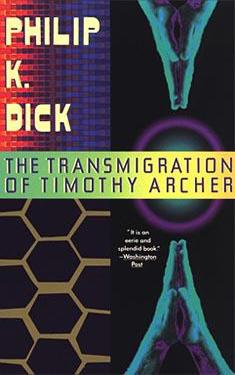Hello all,
I think one of the nicest features of this blog is the tag ("label") system, which allows you to find interesting reviews on a wide variety of topics by clicking on a label at the bottom of a post. I have tried at various times to go back and add labels to posts which were labeled minimally or not at all, to help build this feature.
Today, I began a new project, of organizing all the existing tags into some sort of schematic. Not really a necessary project, but it was interesting to see what all we had come up with over the years. I will probably edit this list from time to time.
Heads up, many of these tags could fit in different categories, so I went with what seemed best to me, but if there are any mistakes (e.g., fictional personnage in the historical personnage list), please do let me know, as I didn't recognize all of the labels. (Also, I tried to be pretty serious about the categories --although it was tempting to editorialize by putting "capitalism" under "Maladies," for example, I resisted those urges.)
Thanks, and enjoy!
WHO
Authors, Thinkers,
and Historical Personages
Alexander McCall Smith, Alice Waters, Amara Lakous, Ann
Patchett, Anthony Bourdain, Armitage, Asimov, Arthur Upfield, Baroness Emmuska
Orczy, Ben Franklin, Billy Collins, Bin Laden, Bogart, Bologna, Branch Rickey, Buddha, Camilleri,
chandler, China Mieville, Confucius, Dalgliesh, Dante, David Foster Wallace,
David Harvey, David Sedaris, Day Lewis, Dorothy Sayers, dostoevsky, Douglas
Adams, Edith Wharton, Elbert Hubbard, Emily Dickinson, Ernest Callenbach, Fermi, Fortinbras, Gabriel
Garcia Marquez, Galileo, Gawain, George Eliot, Greimas, Hegel, Henry Wadsworth
Longfellow, Herman Melville, Hoover, Isaac Bashevis Singer, Isaiah Berlin, J.K. Rowling, Jack
Kennedy, Jackie Robinson, Jaimy Gordon, James, James Russell Lowell, Jim
Butcher, John Brunner, John Grisham, John Masefield, Jonathan Franzen, Joseph Conrad, Josh Foor,
Joyce Carol Oates, JT Kalnay, Kay Thopson, Ken Wilber, kim stanley robinson, Kimball, King, Kurt
Vonnegut, Lauren Belfer, LBJ, Le Carre, le Carré, Lee Blessing, Leonid McGill, Lisbeth
Salander, Lyndon Johnson, Marcus Samuelsson, Marx, Mikael Blomkvist, Miyazaki, Napoleon,
Neal Stephenson, Ned Kelly, Oliver Wendell Holmes, Orwell, pasternak, Paul
Gilding, philip k. dick, Philip Marlowe, Philip Pullman, Plato, Reinhold
Nieburhr, Robert Caro, Robert Kennedy, Robert Louis Stevenson, Roycroft, Sam Irvine, Sayers,
Seeger, Shakespeare, Sir John Mortimer, Smiley, Stanislaw Lem, Stephen Hawking,
Stieg Larsson, Studs Terkel, Tesla, Thackeray, Thomas Cleary, Thoreau, Tim Powers, Tolstoy, Trenton lee
Stewart, Truman Capote, Turgenev, Umberto Eco, upfield, Ursula K. LeGuin, vory,
walter benjamin, walter m. miller, Walter Mosley, Warren Buffett, william
gibson, William Kennedy
Fictional Personages
and Series
Bony, Hamlet, Harry Potter, Harry Dresden Files, Inspector
Montalbano, Moby Dickens, Mysterious Benedict Society, Neuromancer, Rabbit
Fence, Satan, Spiderman, Wimsey
Categories and Groups
of People
Aborigine, aristocracy, baby, bushman, celebrity, coven, cowboy,
dandy, doctor, dysfunctional family, idoru, immigrant, family, ghosts, junkies, LGBTQ, mafia, monk, nark, orphan, otaku, outlaw, pirates, police, private eye, prostitutes, serial
killer, social networks, spy, teenager, twins, witches
Creatures
aliens, animals, demons, giant flying cats, mutants, panther, snakes,
stoats, swordfish, vulture, whales
WHAT
Genre
adventure, apocalypse, apocalyptic literature, autobiography,
biography, children's book, classic, comedy, comic book, coming of age, cyberpunk, detective,
diary, drama, dystopia, essays, epic, experimental, fantasy, fiction, futuristic,
graphic novel, light reading, lit theory, magical realism, mini-reviews, mystery,
noir, nonfiction, Odyssey, parable, play, poetry, post-apocalyptic,
post-nuclear, practical advice, National Book Award, problem comedy, propadana,
revolutionary, romance, russian lit, satire, sci-fi, self-help, seminal, series,
short stories, social commentary, steampunk, thriller, utopia, western,
whodunit
Mood
comic, dark, depressing, heartwarming, humor, inspirational,
motivational, searing, sentimental, uncomfortable
Disciplines
art, astrobiology, astrophysics, cosmology, criminal
justice, geology, ecology, economics, health, history, law, math, medicine,
metaphysics, philosophy, politics, psychology, religion, science, statistics, theology,
theory, zoology
Maladies
alcoholism, autism, blindness, cancer, disease, drug
culture, insomnia, paranoia, schizophrenia, tuberculosis
Computers and Sci-Fi
artifical intelligence, computer virus, computers, cyberspace,
Fermi's paradox, hacking, nanotechnology, robot, space exploration, spaceship, time-travel,
video games, virtual reality
Other Topics
abortion, adultery, airline, banks, baseball, chess, CIA, coal mining, cooking, corruption, cricket, crime,
cuisine, death, espionage, eucharist, farming, feces, finance, fishing, folk
music, food, gaming, glossolalia, heresy, horseracing, labyrinth, Latin, legal
system, magic, martial arts, matrix, media, memory, mnemonics, murder, music, money
laundering, networking, newspaper, organic, parenting, penicillin, precognition, protest, revenge, seafaring, semiotic
square, sexuality, soul patches, technology, tennis, terrorism, tombstones,
travel, treasure hunt, UN, war
WHEN
Historical Events and
Time-period
1600s, 1700s, 1812, 1930s, 1970s, Civil War, Copernican revolution, early 1900s, French
revolution, mid-1800s, postmodernity, revolutionary war, Soviet Russia, Spanish Civil War, twentieth
century, World War II
WHERE
Places
Africa, amazon, America, ancient Greece, Australia, Boston, Buffalo,
California, Chez Panisse, China, Egypt, England, Ethiopia, farm, Florida, France, Ghana,
graveyard, India, Indonesia, Inferno, Israel, Italy, Japan, Los Angeles, manhattan,
mars, monastery, moscow, New York, New Zealand, Niagara Falls, Nicaragua, NYC,
old west, Online, Orange County, outerspace, Pacific Northwest, Philadelphia, Poland, Provence, Rockefeller Institute, Rome,
Russia, Seattle, Thailand, Tokyo, vienna, Vietnam
WHY
Concepts, Movements,
Ideologies and Ways of Life
asceticism, capitalism, communism, conspiracy, Daoism, democracy, emergence,
environmentalism, free will, gnosticism, green movement, Judaism, liberty, messianism,
mysticism, nihilism, poverty, power, racism, rationality, realism, spiritual
enlightenment, spirituality, zen
Historical Events and
Trends
Black history, civil rights, colonization, evolution of
culture, global climatic disruption, globalization, race relations, serfdom





